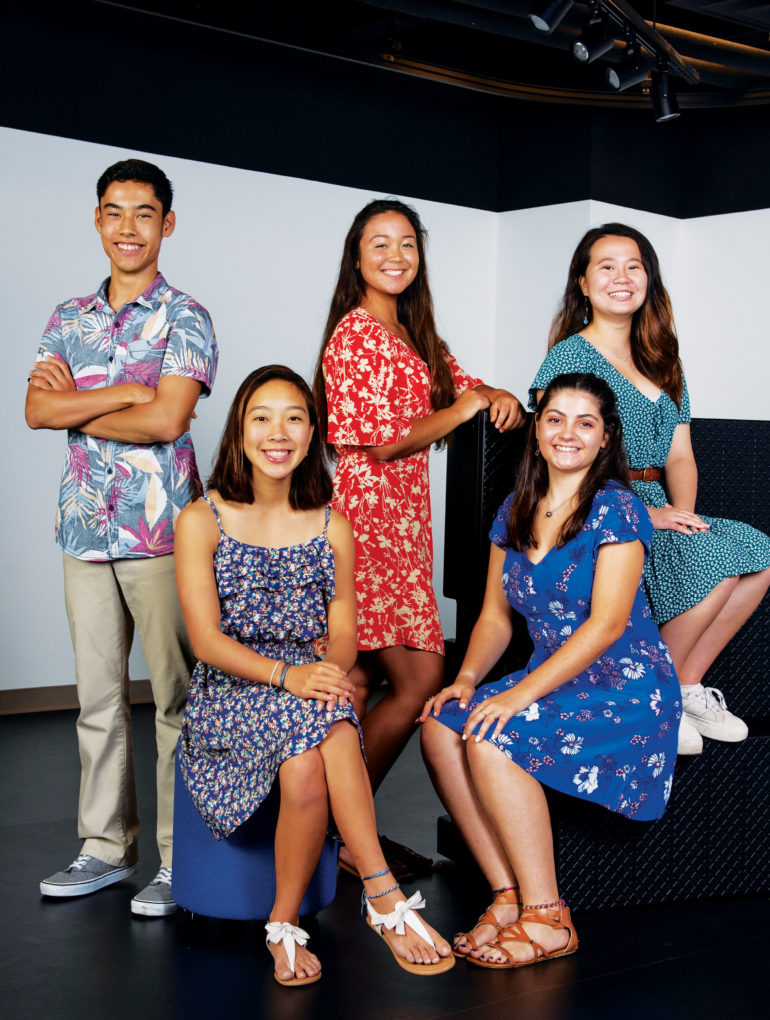By Diane Seo ’85 and Mari Taketa
Punahou encourages students to think big – to pursue innovative ideas and use their talents and skills to make a difference in the world.
Alumni have taken this calling to heart, and thousands, like the three featured in this issue of the Bulletin, have embarked on groundbreaking careers. Similarly, current students in the Junior School and the Academy have initiated various projects at School, the community and beyond that address real-world issues. Some are tackling issues such as homelessness, environmental pollution and income disparity, while others are demonstrating acts of kindness that are just as significant.
In this issue of the Bulletin, we are introducing a few students who are leading efforts that reflect bold thinking and an ability to effect change. Along with these go-getters, there are hundreds of others inspired by good intentions, revealing how a Punahou education extends beyond the classroom to motivate students who are poised to change the world.
Punahou encourages students to think big – to pursue innovative ideas and use their talents and skills to make a difference in the world. “We hope students draw upon their experiences to emerge as tomorrow’s leaders and innovators, addressing real-world problems and making an impact. Our aim has long been to inspire students to make the world a better place.”
– President Mike Latham ’86
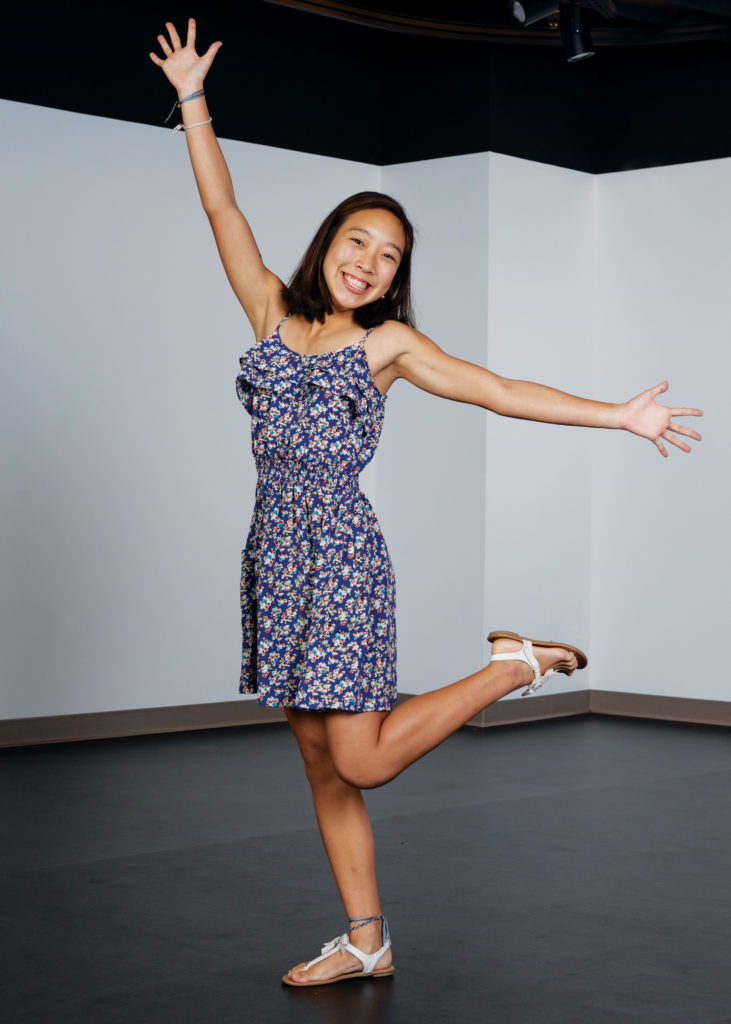
Sabina Funasaki ’24
Plastic bottles, bags, you name it: Sabina Funasaki ’24 sees trash in the Ala Wai Canal. Six days a week she trains with Ikaika Hawaii Watermans Program, steering her kayak to pick up whatever floating objects she can. But it’s not just the Ala Wai: Two years ago, at age 12, Funasaki won the School’s William Knowlton Award for spearheading Punahou’s involvement in cleaning up a stream that flows into Waikıkı’s ecologically challenged waterway.
Last year’s project introduced Punahou students to an annual effort to clean the banks of a stream that flows through ‘Iolani School. Funasaki did this with help from her teachers. She made flyers, announced it in her team space and encouraged whoever she could to help. Her dreams for this second year are bigger – to find a way to safely get onto the water to clear floating debris. “Pauoa Stream, Makiki Stream, Manoa Stream flow into the Ala Wai. If we clean up our streams, the Ala Wai will be a little bit cleaner,” she says. “My goal is that the Ala Wai won’t pollute the ocean any more than it does. There’s no gate, no fence to stop all the trash, which can harm the wildlife in the ocean. If you figure out how to solve the small little problems, like the Ala Wai, that can make a huge difference.”
That’s not all. Funasaki is talking to her Ikaika coach about organizing monthly team cleanups of the Ala Wai. She’s working with Punahou teacher Ian Earle ’89 on ideas to improve water quality in the campus Lily Pond. She’s been researching experiments to clean polluted waters and has reached out to community leaders about using beneficial microorganisms to rejuvenate the Ala Wai. All this happens between homework, choir practice, paddling, musical theater (she was the blind mouse narrator in the fall 2019 production of “Shrek The Musical JR.”) and working toward Eagle Scout status as one of Hawai‘i’s first female Boy Scouts.
She also spent last summer coaching younger kids at Ikaika’s summer camp and competing in her first national tournament in Atlanta, where she won bronze medals in double kayak and four-man kayak. Next year, her freshman year, she hopes to join Punahou’s own kayak team. “I have many dreams; I’m the person that wants to do everything,” she says. At this rate, she probably will.
– By Mari Taketa
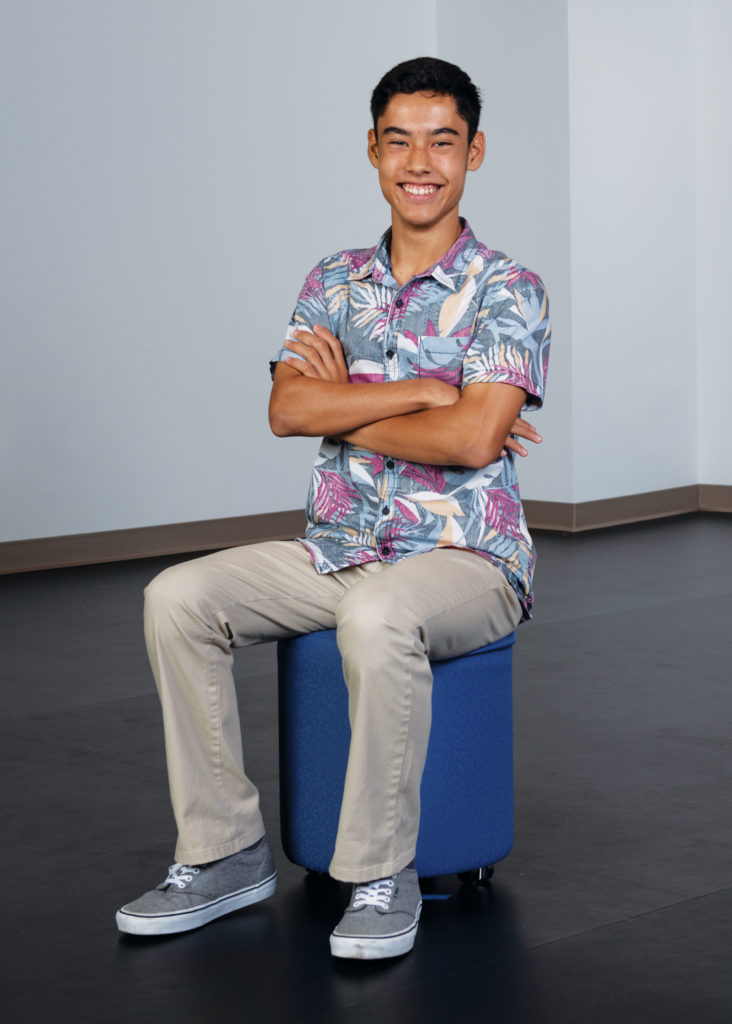
Shea Sakahara ’23
At just 14 years old, it’s clear Shea Sakahara ’23 is going to do amazing things in his life. Maybe it will be for the community, the country or even the planet. You can tell by the way he thinks, cares and carries through with ideas. Three years ago, Sakahara launched an organization, Strong Start 4 Kids, that’s still going strong – hosting annual school supply drives for students elsewhere who need them.
He organized his first drive after arriving at Punahou in the sixth grade. Former classmates at Kailua Elementary often didn’t have the pens, portfolios and notebooks they needed for school. He also knew teachers, like his mother, often spent their own money to buy supplies for their students. Sakahara’s one-week effort amassed 1,000 pencils, rulers and other things for Kailua Elementary.
The next year, Strong Start 4 Kids partnered with Maunawili Elementary School, collecting 1,700 school supply donations. When Sakahara was in eighth grade, the group received 525 donation from Punahou faculty and shipped them to two schools in the Philippines. Last month, Strong Start 4 Kids, assisted by the Luke Center for Public Service, held a one-day drive, drawing donations from Punahou alumni for Pu‘uhale Elementary in Kalihi.
Gratitude for his own blessings is what motivates Sakahara to pursue his community projects. Diagnosed with cerebral palsy as a baby, he wore leg braces on both legs and went through extensive physical therapy to gain strength and coordination. Today, he walks brace-free and plays baseball, albeit a little differently. “Like [former Major League Baseball star] Jim Abbott, I throw and catch with the same arm because of the cerebral palsy,” he said.
As a longtime patient at Shriners Hospitals for Children, Sakahara says he received invaluable help from doctors, therapists and others. Now, he’s intent on giving back to others. “I want to pay it forward and not wait until I’m an adult to do that, so I’m really grateful I have the opportunity to make an impact now,” he said. “This is something I’m definitely passionate about, because it’s something that’s very close to me personally. For me, it’s always been about sharing, being able to help out in any way I can.”
– By Diane Seo ’85
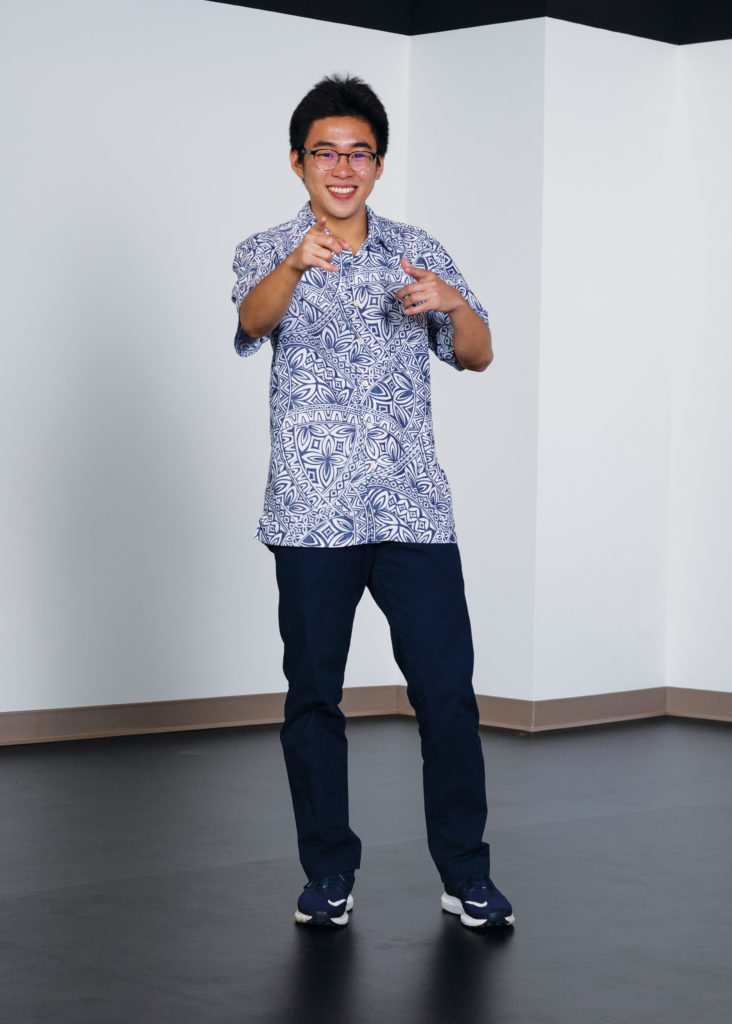
Zane Yamamoto ’20
On the final day of the last school year, the incoming president of the Class of 2020 sat down with the outgoing president of the Class of 2019 and laid out a dream. Student government didn’t matter to most kids at Punahou, but it was a potentially powerful way to give them a voice.
The plan crafted by Zane Yamamoto ’20 and his predecessor, Lorraine Sim ’19, was as detailed as it was ambitious: Four committees covering all aspects of school life and open to any Academy student without the need to run for election; and for the first time, dialogue between the student governments of every Academy class and with the administration. “There were policy decisions that created some friction between administrators and students. Decisions weren’t being explained. They would be enforced, students would protest and [administrators] would explain after,” Yamamoto recalls. “How much frustration and handwringing could be saved if we had a channel of communication? And if we involve students in those policies, they can provide a different perspective.”
His taste for student government came accidentally, when almost on a whim he ran for seventh grade class representative – and lost. But it was close. The next year, running on the slogan, “No Zane, No Gain,” he won the class presidency. He would win that post every year since, except sophomore year. Still, he was surprised when Academy Principal Emily McCarren accepted the proposal he drafted with Sim. Today, Academy Classes are talking and coordinating, and the four new committees – School Policy, Community Service and Sustainability, Media and Publicity, and Spirit and Events – are driven by 80 Academy students.
What Yamamoto has done at Punahou has shaped his trajectory. In college, he wants to craft an interdisciplinary major combining politics, economics and philosophy. Beyond that, he’s thinking about public service. Already he can see room for systemic improvements in our political an economic structures. But first things first.
“The true success of the American Constitution is not the election of the first president, but the election of the second. Our test will not be the first year, but the formation of these committees in the second. To know that our drives do not leave with us, but that there are boys and girls who will always continue our work here,” he says. “If there’s one thing I wish I could make certain, it’s that student government will always be a central part of life for students at Punahou.”
– By Mari Taketa

Siya Kumar ’20
Siya Kumar ’20 says most parents don’t understand the constant pressures and issues high school kids face. This can create distance, misunderstandings and even conflicts. To mend the divide, she spearheaded a series of events at Punahou, called Meaningful Conversations, where students talk candidly about high school life and answer questions from parent attendees.
So far, Kumar and Academy faculty member Maureen MacLeod, who leads the School’s S+WELL (Support and Wellness) program, have held two successful events on campus; another session is planned in coming months for Academy parents who want to connect better and have “meaningful conversations” with their children. “Teenagers today have to deal with a lot of overwhelming stress, and sometimes they find unhealthy ways to cope with it,” Kumar says. “We cover topics like peer pressure and mental health, with a goal of taking away the stigma around speaking about those kinds of things.”
Meaningful Conversations is just one of the projects Kumar has delved into since coming to Punahou as a freshman. She also heads up the Academy’s Sustainable Living club, and was one of the organizers of last spring’s Global Issues Network conference, a three-day event for Hawai‘i students that addressed social and environmental issues. She also volunteers for Aloha Harvest, a local nonprofit organization that distributes excess food to the needy, hungry and homeless.
Kumar says she’s particularly interested in food sustainability, including the ways eating habits affect the environment. “A lot of people don’t know how much food we waste, and how many people could be fed if we set up better distribution methods, like what Aloha Harvest does,” she says.
After Punahou, Kumar plans to study public health or environmental science and maybe attend medical school. She says her ability to get her projects off the ground has greatly inspired her to keep coming up with new ideas. “I think our generation has a responsibility to be the next leaders and changemakers,” she says. “And at Punahou, adults believe in students. That’s really important – being willing to listen to our perspectives, which makes us believe we’re capable of making a difference.”
– By Diane Seo ’85
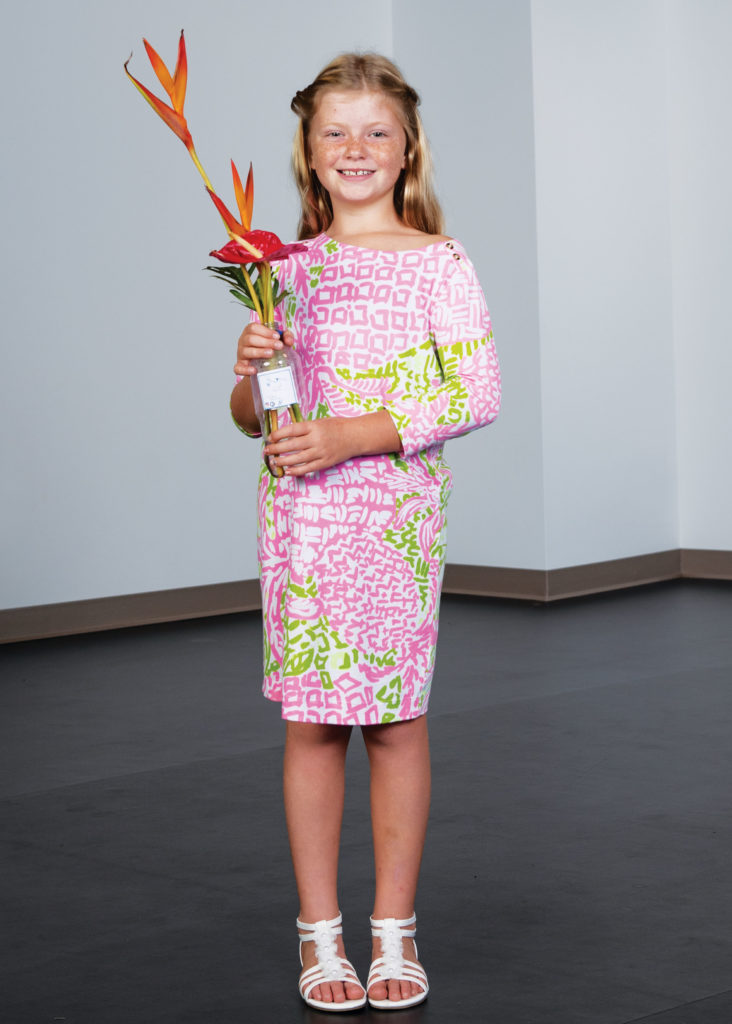
Lily Cox ’30
Lily Cox ’30, a second grader, is proof that making a difference has no age limit – or rather, starting age. Last April, the 8-year-old had an idea after her mother, Laura Cox, brought home flowers that had been used at an event and said, “Want to do something with these?”
Lily thought about her grandmother, whom she had visited at a nursing home in New York. While there, she noticed that several residents had no visitors, which made her want to do something nice for the elderly. She decided to turn recycled plastic water bottles into flower vases. She created her own “Love of Lily” stickers and pasted them on the bottles.
She now spends her weekends delivering her water bottle flower arrangements to various nursing homes and senior centers around the Island. She connects with between 30 or 40 seniors during each visit. So far, she’s personally handed out more than 600 of her adorable creations. Lily says she likes to see the reaction of the people she visits. Some people smile; others ask for hugs or kisses; some wonder if there’s a cost. “I tell them it only costs a smile,” she says. “I like to make people happy.”
In seeking guidance for the project, Lily’s parents reached out to Dani Goddard, director of Punahou’s Luke Center for Public Service. “She told us, ‘Please keep it going,’” says Todd Cox, Lily’s father. “She literally is the youngest student I’ve ever seen do this,” Goddard said. “I’ve certainly seen my fair share of eighth graders and Academy students take on projects. But when a second grader does this, I was like, ‘What? How does she already understand these concepts?’ I asked her parents if the commitment was more hers or theirs, and they said, ‘Nope, she looks forward to this. She collects water bottles, and always talks about how she’s going to make them pretty.’”
– By Diane Seo ’85
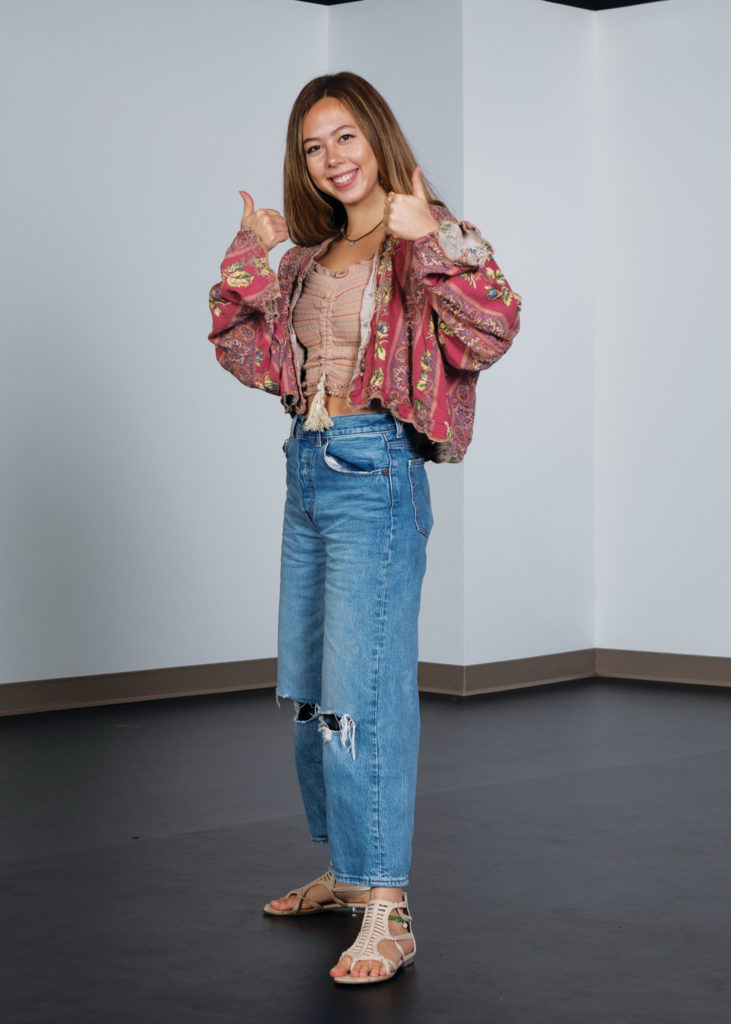
Jenny Yim ’20
The words come to her at night – thoughts and feelings that, alone in her room after the day is done, Jenny Yim ’20 will weave into the lyrics of a new song. Her mezzo-soprano voice flitting through high trills, dropping to a whisper and soaring with power, she sings about social issues that move her – especially climate change, the greatest threat she says her generation faces. “I like to write about things that are bigger than me to raise awareness,” she says. “I get to use songwriting to try to make an impact on people’s lives. If I can do that, then I have a purpose in life, and that means everything to me.”
Now a senior, Yim is already a veteran performer who opens for visiting bands, including lovelytheband, Flora Cash and Summer Salt. Her first memory of music was hearing a CD of her father singing with his brothers. To a child gifted with musical talent, it was the most beautiful thing ever, and she started composing jingles. At weddings and family gatherings her twin sister, Madison, joined her in singing duets. In fourth grade she wrote her first song, a sad love story set in a cave. To date, she’s written 170. You can hear snippets of her originals and covers on Instagram (@jehneny), or check out her cover of “Morning has Broken” on Punahou’s YouTube page. In January, she debuted at Blaisdell Concert Hall as the opening act for Jason Isbell.
What’s next? Studying music in college, a gap year, maybe touring – she hasn’t decided. What’s important is the message – that it’s important to speak out, that the actions of a few can inspire many, that many together can raise awareness and change the world. “Music,” she says, “is a powerful tool in sparking change.”
– By Mari Taketa
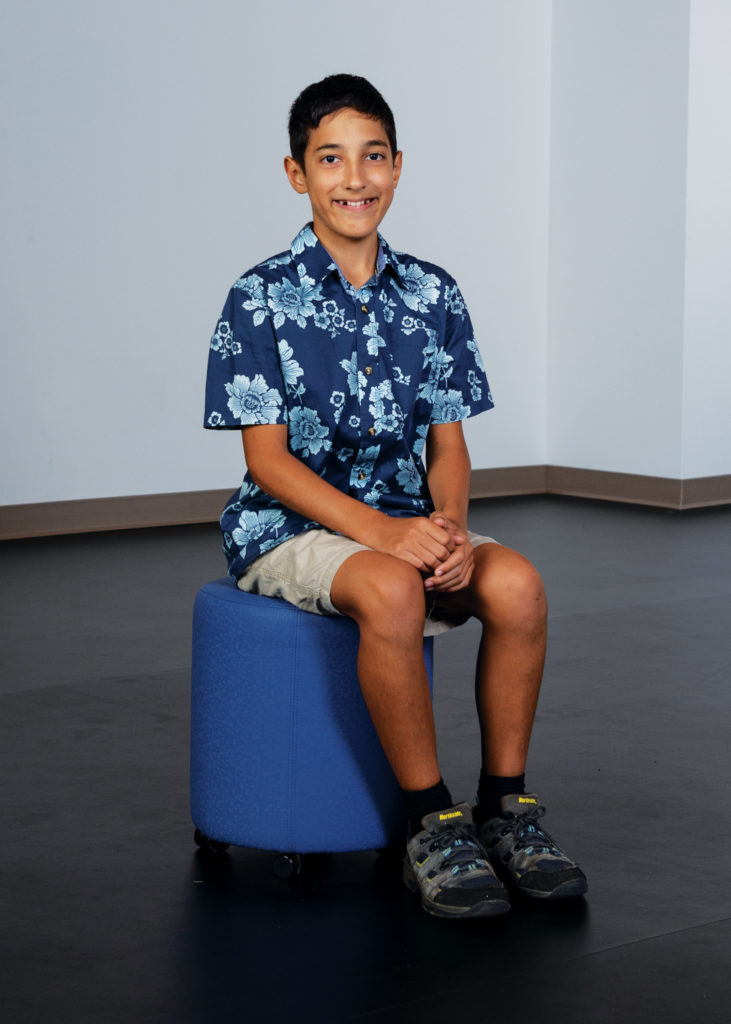
Nicholas Williams ’25
To Nicholas Williams ’25, nothing about the daily after-school scene of parents in cars waiting for their kids at pickup made sense. “There would be tons of cars idling, just sitting there for like half an hour. I could smell the fumes. I was like, this shouldn’t be happening because it’s dangerous to the kids,” he recalls. “The engines are running because they’re using air conditioning, which pollutes the atmosphere, which causes global warming, which makes people use air conditioning more and more.”
Williams was unsure what to do. At 11 years old, he was more into robotics and fuel-efficient airplanes than advocacy, and didn’t want to bother busy administrators. But if idling engines didn’t make sense, it was equally clear that the longer he did nothing, the worse the situation would get. So he swallowed his fears and wrote to his dean, Lori Komori ’91. He was shocked when she thanked him for his concern and invited him to meet with campus Security Director Kevin Uperesa ’77. That started an ongoing dialogue about ways to get his message out to the Punahou community.
The ideas continue, including writing a letter informing parents about the environmental impacts of not turning off car engines. He’s contemplated making signs and wonders if Punahou can become a no-idling campus in the same way Aspen, Colorado, has declared itself a no-idling city.
“If your kids aren’t coming out, you could go and park somewhere and just walk around campus,” he suggests. “ We have new buildings, there’s a lot of plants and you can see what students are doing in athletics, robotics or the makery.”
Williams hopes more people realize that everyday habits will have to change to make a difference. “I think Punahou is becoming aware of this problem of global climate change,” he says. “I’m hoping I can maybe push that even further.”
– By Mari Taketa
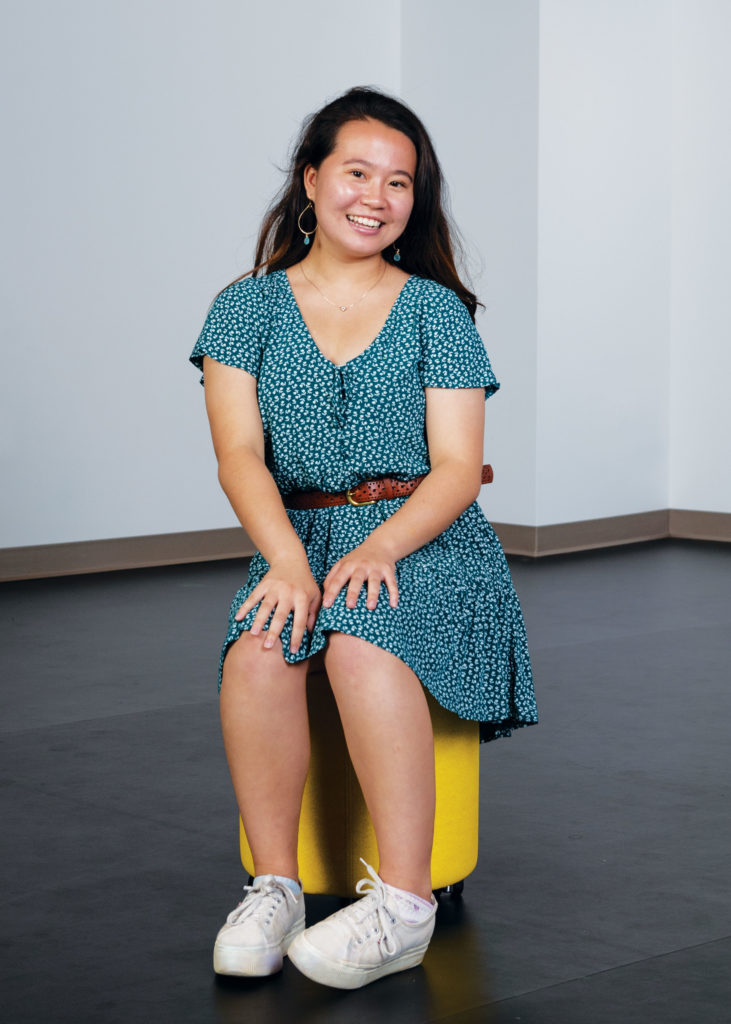
Sabrina Loui ’21, Maile Marguleas ’21 and Mari Shoop ’21
Carrying clothes they had collected, Sabrina Loui ’21 said her mother led her through the homeless camps near the Children’s Discovery Center in Kaka‘ako. One tent belonged to a woman and her tiny daughter.
“She’d been looking for work, but she couldn’t leave her little girl alone. The minimum wage wasn’t enough to get a house, and the waitlist for shelters was pages long,” Loui recalls. “That’s when I realized these people don’t have the same opportunities I do. I was nervous, so I was humming and the little girl started singing. I was like, what if these kids have an amazing voice but they don’t have the resources we have? I’ve been given so much. I could be doing so much more. What can I do to help?”
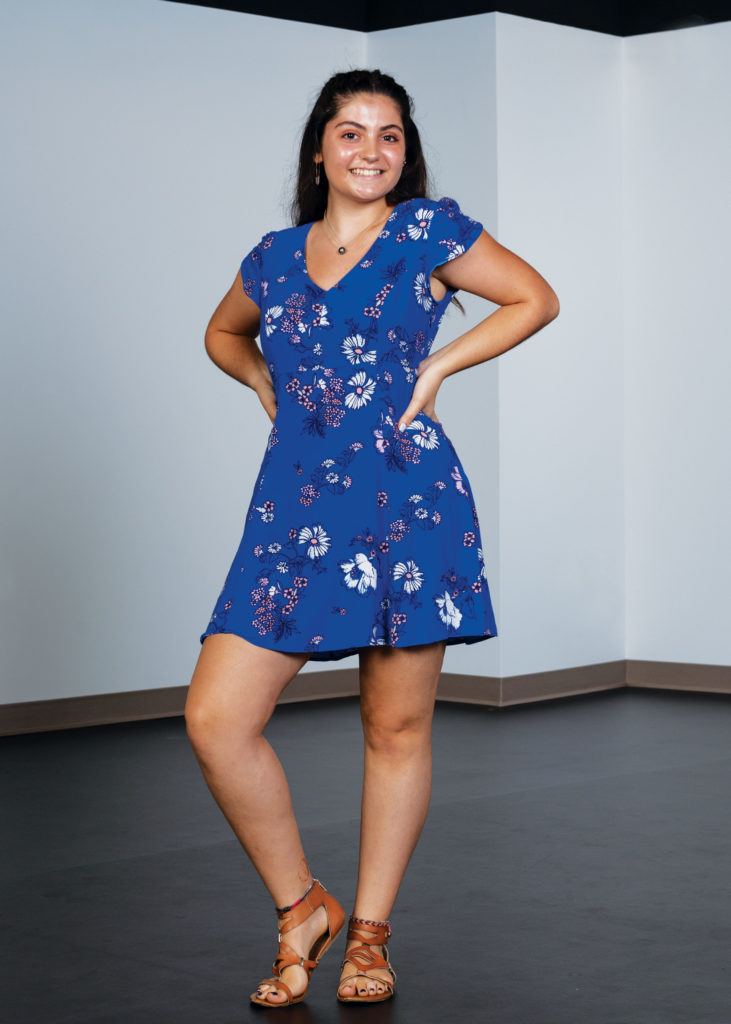
The encounter changed her life. With friends Maile Marguleas ’21 and Mari Shoop ’21, she began looking for ways to cultivate relationships with homeless kids. Their goal was to discover each one’s dreams and then find ways to open doors for them. If someone likes to dance, for example, they can negotiate a discount and raise funds to pay a studio.
Guided by Dani Goddard of Punahou’s Luke Center for Public Service and Scott Nishimoto, executive director of Maya Soetoro-Ng’s ’88 peace-building Ceeds of Peace nonprofit, they’ve met with organizations that help homeless people and have reached out to McKinley High School.
The idea is to partner with student leaders there to help motivated, at-risk students. They also spend time after school with homeless children – playing basketball and teaching them games – and have recruited Punahou eighth graders to do the same.
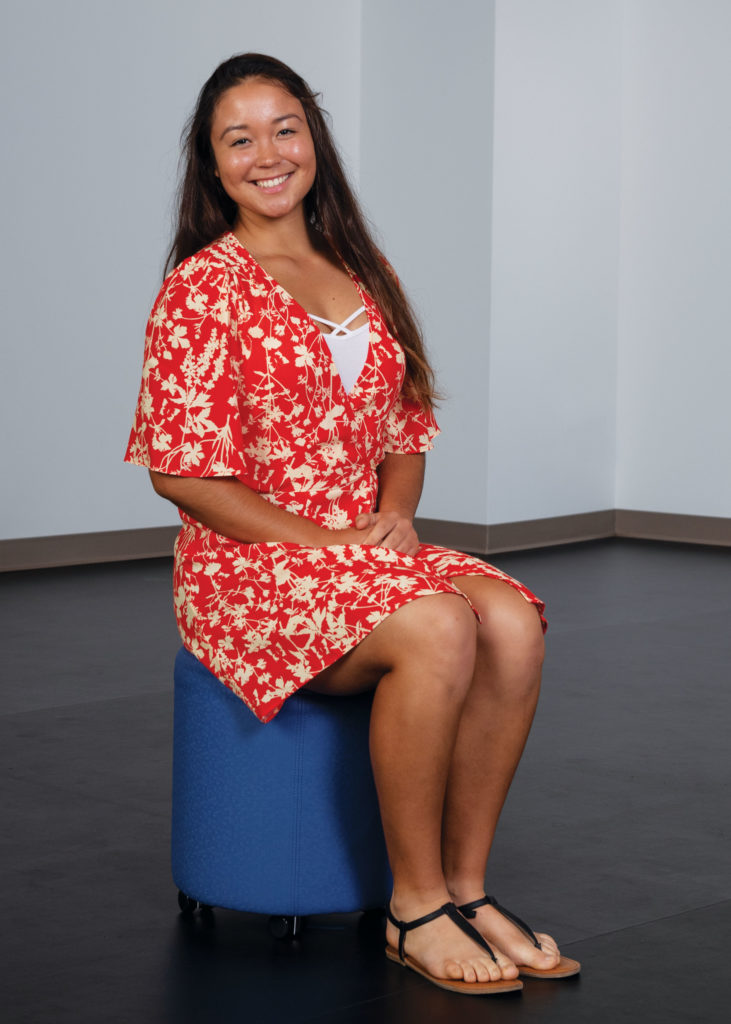
“Our slogan is building relationships and empowering individuals one step at a time,” Loui says. “We want to level the playing field in some senses. Sometimes, I feel we’re not doing enough with what we have, and some of these kids would do anything for these opportunities.”
Says Marguleas: “It’s not a temporary solution. We’re not giving them help for a month. Once they learn from these opportunities that are given to them, they can help their families and communities with the same kinds of opportunities.”
Adds Shoop, “We want them to become leaders.”
Just like these three.
– By Mari Taketa
Luke Center for Public Service: Guiding Students to Lead Change
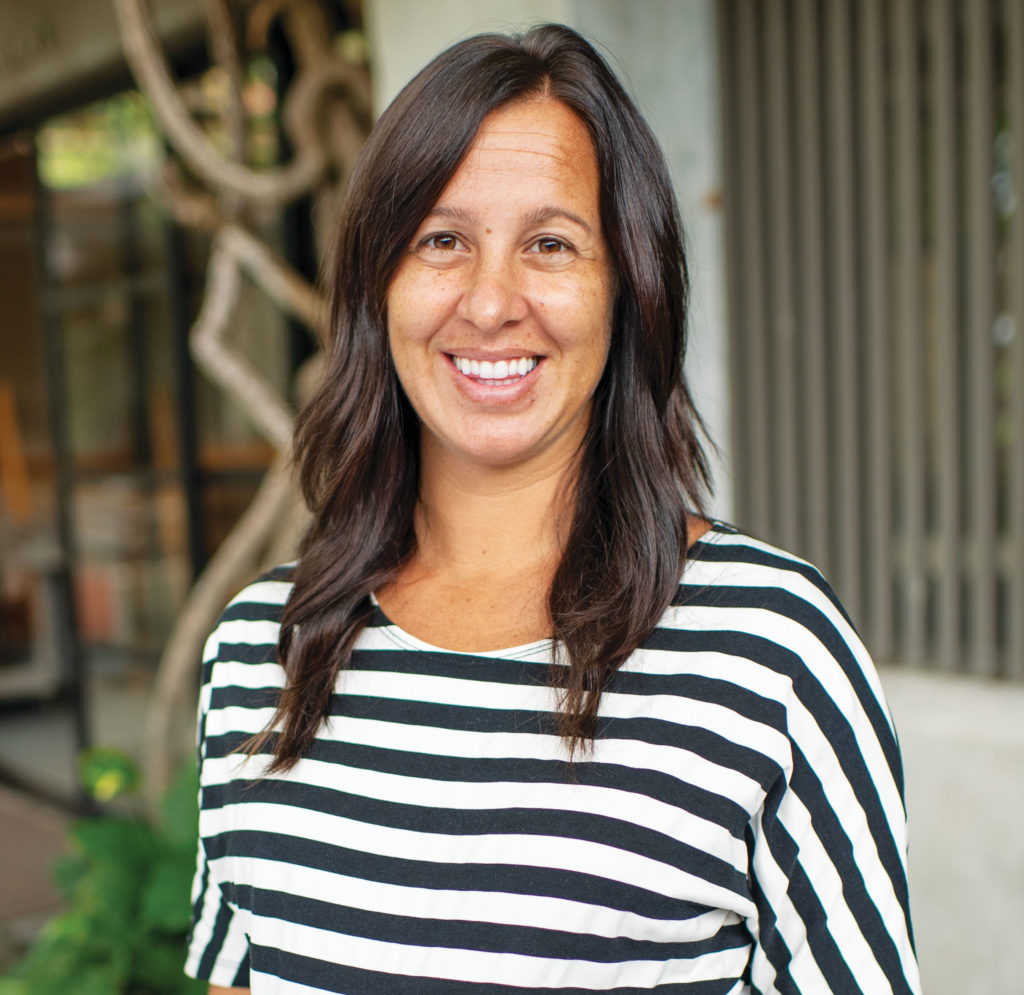
Launched in 2002, Punahou’s Luke Center for Public Service has mentored thousands of students, faculty and community members interested in becoming agents of social change. There are so many students here at Punahou with a strong desire to help the community and with remarkable ideas to do that, says Dani Goddard, director of the Luke Center. “That’s why we created our programs – to guide students who really want to get involved, but aren’t sure how to do it.”
The Center serves as a resource hub – connecting students to community service projects; assisting faculty with integrating public service into the curriculum; and providing guidance to students wanting to initiate community oriented endeavors.
Goddard, who is in her first year as director, says the Center is in the midst of assisting students with about 20 projects, putting them through design thinking accelerators so they can map out plans. “When I found out there was a center here at Punahou specifically dedicated to just this kind of work, I was blown away by the fact that this even exists.”
Punahou, she says, instills in students that if they’ve been given resources and abilities to make a positive change, they have an obligation to do that. “We’re raising kids to be very community minded, even from a very young age,” she says.
While younger students are introduced to the work of nonprofits and encouraged to start volunteering, Academy students are pushed further and asked: “How can you solve these problems?”
“They may have worked at a soup kitchen in the past, but now, they should consider the larger problem of why people don’t have food,” Goddard said. “So we’ll talk about food scarcity, and what they can do to help with that here in Hawai‘i.”
As they pursue projects, students develop grit, perseverance and empathy – skills Goddard believes are essential. “Leaving a positive footprint is really difficult,” she said. “And I think teaching kids to get through these big obstacles and these big problem-solving projects is what will make them really successful in their future.”
Case Accelerator for Student Entrepreneurship (CASE): Creating Solutions
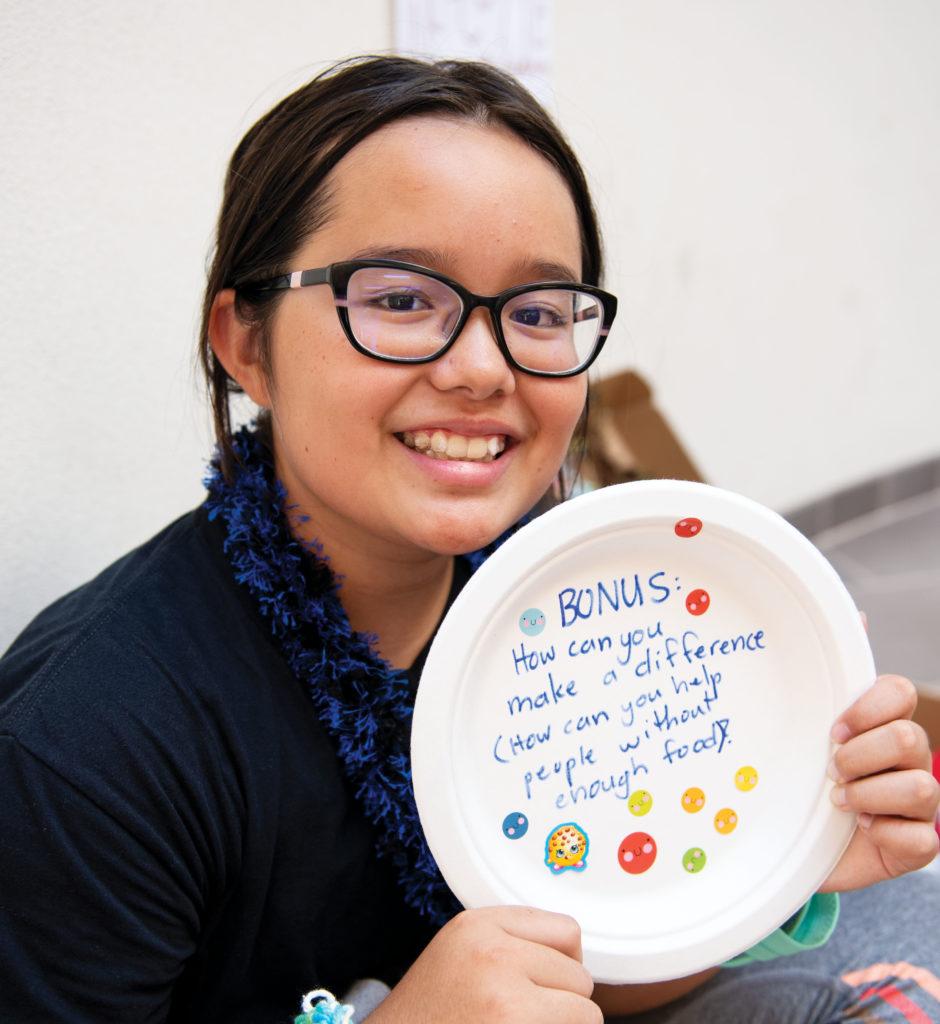
Students from kindergarten through the Academy now have added opportunities to develop entrepreneurial skills with the launch of Punahou’s Case Accelerator for Student Entrepreneurship (CASE). The program, which encourages students to develop solutions to real-world problems, came about with a gift from the Case Foundation to the Luke Center for Public Service. Punahou Trustee Steve Case ’76 and his wife, Jean, wanted to extend Luke Center’s work to mentor students to address issues in the community and beyond.
CASE Director Mark Loughridge says the program encourages entrepreneurship in a variety of ways. “If you can reach kids when they are young and give them fun, playful and inventive experiences to connect with a real want, need or problem in a community, then later on in their lives, they’ll ask themselves, ‘Can I do this? Can I be an entrepreneur?’ and they’ll say, ‘Yeah, I got this,’” he says.
In its first year, CASE has organized talk-story sessions with seasoned entrepreneurs, hackathons and design sprints. Loughridge also has been mentoring students who have launched or are trying to initiate entrepreneurial projects. As part of a recent CASE panel discussion, entrepreneurs Olin Lagon, Dustin Shindo and Meli James ’96 shared stories of success and failure with Academy students. One student attending the session, Noelle Nakaoka ’20, ended up with a summer internship with Mana Up, which James founded.
At another Punahou-hosted event, students teamed up with employees of Booz Allen Hamilton during a hackathon to find solutions for families dealing with ALS (Lou Gehrig’s disease). “My goal is to give every student opportunities to create solutions and answer real needs and wants in their community at Punahou and beyond,” Loughridge says. “This makes project-based learnin authentic when you connect problems with solutions.”
– By Diane Seo ’85

